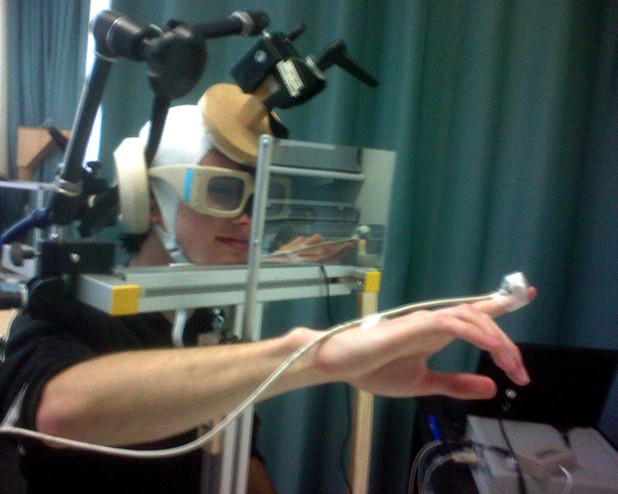- Story Highlights
-
- Magnetic: Brain stimulation is now a proven effective treatment for severe depression
Magnetic Brain Stimulation Is Proven an Effective Therapy for Severe Depression
A new research study has proven that the magnetic brain stimulation does work for some people who have severe depression that does not respond to anti depressants.
Some people with serve depression do not respond well to treatment with anti depressants. Electro shock therapy is an option that will work for some; but there are unpleasant side effects and a newer non invasive treatment, which involved magnetic stimulation of the brain, had never been proven effective.
Until now - Scientists at the Medical University of South Carolina have now proven that for 14% of people, magnetic stimulation of the brain can reduce the severity of severe depression. (14% is a low success rate, but these are hard-to treat cases that have proven unresponsive to conventional therapies, which makes 14% seem a little more positive.)
Magnetic stimulation of the brain has been known, anecdotally, as an effective treatment for severe depression, and it is an FDA approved technique. A device worn on the head emits 3000 magnetic pulses per minute, aimed at specific parts of the brain. There are no apparent side effects, but critics of the method have long doubted its true efficacy and have pointed at a lack of controlled comparison studies to bolster their critiques.
The problem has been – it is very difficult to run a double blind study comparing magnetic stimulation of the brain with a placebo – the subjects can always tell if they are getting the procedure or not, and this confounds the results.
Led by Dr, Mark George, The University of South Carolina Researchers overcame this problem by developing a placebo magnetic stimulation device that when activated and applied on a patient, felt similar to the real device – even causing the same tapping sensation on the skull and eye twitches.
With an appropriate placebo device, the researchers were able to run a true controlled comparison experiment.
The Experiment
190 patients with severe drug resistant depression were enrolled in the study. Each patient was assigned to receive either 15 sessions of magnetic stimulation therapy, or 15 sessions of a placebo therapy. Subjects did not know which group they were in.
- After 15 sessions over 15 days, 14.1% of those who had received magnetic stimulation experienced reduced depression, compared to 5.1% of who had received a placebo
- After the experiments’ completion, when all subjects were given magnetic stimulation for another 3 weeks, 30% experienced a reduction in depressive symptoms.
Dr. George commented on the significance of the study by saying, "This study should help settle the debate about whether [the technique] works for depression. We can now follow up clues suggesting ways to improve its effectiveness, and hopefully further develop a potential new class of stimulation treatments for other brain disorders."
The full research results have been published in Archives of General Psychiatry. The study was funded, in part, by the National Institute of Mental Health.


